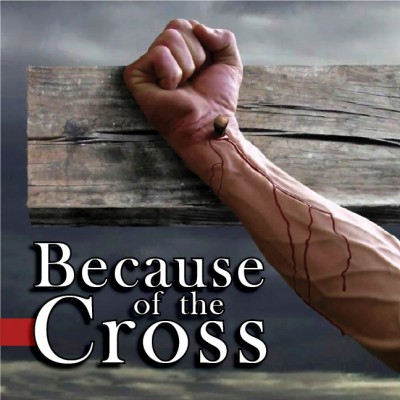Sermon Summary
In this four-part series called “Because of the Cross” we’re taking a look at the riches that are ours because of what Christ has done for us. We’ve arrived at part three; if you missed any of the previous installments of this
series please watch them for free at TCC.ORG.
Jesus said that loving God supremely is the most important thing (Matthew 22:36-38). So, how can we love God more? Luke 7:40-47 gives us very practical help: the more sins for which we have been forgiven, the more
we’ll love God. Does God forgive some people more than he forgives other people? No—when God forgives a person, he forgives all of their sins. It’s all or nothing; either all your sins are forgiven, or none are. But do some people have more sins than others—or bigger ones? So, sin more and sin bigger so you can love God more?! Is that what Jesus meant? (No—Romans 6 refutes that idea).
In God’s eyes, it’s as if we’re all guilty of everything (James 2:10-11)! God is not being mean—he’s being holy! He cares about all of his law, not just one part or another. And heaven is for absolute purity and goodness.
Whenever we turn on the news, there’s another atrocious story of mankind’s evil. We long for justice and purity and wholesomeness in our corrupt world. And we think, “Nothing could atone for such atrocities!” But Isaiah 53:6 says that “all of us like sheep have gone astray, each of us has turned to his own way.” Isaiah seems to lump us all together—“all of us” and “each one of us”! We’re all willing to admit that we’re sinners—that I “stray” and “go my own way”, but atrocities have to be in a different category!
Our problem is that we’re using the wrong measuring stick. We compare ourselves to each other, rather than to God. We always can find someone who’s done better or worse than we have. In the face of atrocities, we cry
out for justice. But if we were honest, the idea of divine justice ought to scare us. But God compares us to himself. The person who keeps all of the laws except one is as guilty as a person who has broken all of God’s laws (James 2:10-11). That’s bad news—but the rest of Isaiah 53 shares the good news: Christ took God’s wrath for us.
Are we good people who just need a little “assist”, a “leg up”? Or do we realize that we are all in the same boat? How much have we been forgiven? A little —or a lot? That will be the measure of our love for the Savior. The
fear of the Lord is reverence which recognizes that he is absolutely holy, and that we are not. Our understanding of God’s holiness and mankind’s sin are inextricably linked. However holy you understand God to be, to
that degree you’ll accurately view your sin. As our understanding of God’s holiness grows, so does our understanding of our sin…and our love and appreciation for our Savior. This is what should happen as we mature as
believers.
If you’re not absolutely certain that Christ has borne God’s wrath in your place, trust him today. If you have received God’s forgiveness, love him for it. He didn’t forgive us a little, he forgave us a lot. Too often we Christians are embarrassed to say things like “God saved me.” or “I was a sinner, on my way to hell, but God delivered me.” We say things like: “As a child I used to go to church, but then I drifted away. Recently I’ve gotten more serious about my faith.” That sounds more like a leg-up than a rescue. If you have received God’s forgiveness, glorify him for it.


